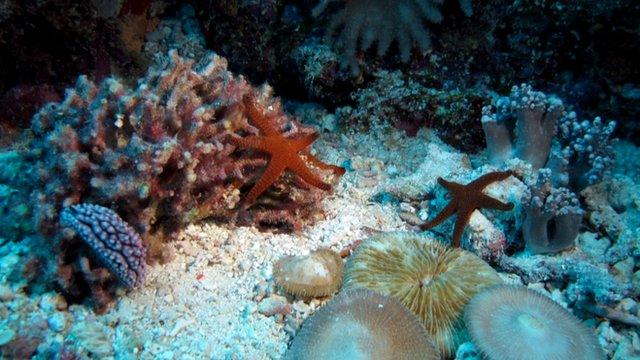Abbot Point spoil dumping plan will not get impact study
- Published
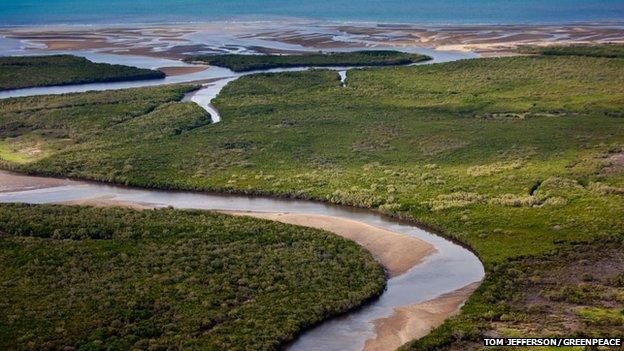
Abbot Point and Caley Valley Wetlands are home to more than 40,000 water birds
The Australian government will not conduct a full environmental impact assessment for the disposal of dredge spoil on sensitive wetlands at Abbot Point, near the Great Barrier Reef.
The controversial project will be assessed using "preliminary documentation" only, documents show, external.
Abbot Point, south of Cairns, is a major coal port and is being expanded to cope with increased exports.
Environmental groups say the government's step is highly unusual.
They say fast-tracking the dredging approval would put an already threatened reef in greater danger of degradation.
Greenpeace reef campaigner Shani Tager said: "Adani, the Indian coal company behind the new Abbot Point coal terminal, has been holding the Queensland and federal governments to ransom over this development, threatening to pull out unless their demands are met.
"[Environment Minister] Greg Hunt has rolled over, again failing to stand up to Adani and its reef wrecking agenda."


The Abbot Point Port and Wetland Project
Dredging of 2.5m tonnes of seabed and seagrass from Great Barrier Reef
Construction of 335 hectares of dredge spoil storage ponds on wetlands near the reef
Pipeline to allow discharge of storm water into the wetlands
A 6.5km (four miles) long, 4m high circular railway embankment that will enclose most of the wetlands

In September, the Queensland government asked the federal government to speed up the plan's approval, assessing it using documents filed with an original plan to dump dredge spoil in Great Barrier Reef waters.
A spokesman for Mr Hunt told Australian media that the assessment would be a "very rigorous process".
"Australia has some of the most stringent environmental protection laws in the world and these proposals will be assessed thoroughly," the spokesman said.
Under the proposal, millions of tonnes of seabed would be dredged from the World Heritage Area and dumped on the Caley Valley wetlands, which is home to more than 40,000 water birds.
The government recently changed a plan to dump thousands of tonnes of sediment at sea but scientists remain concerned about what that will mean for the wetlands and the nearby reef.
Conservation group WWF-Australia said a full environmental impact assessment process was standard practice with a development of this size.
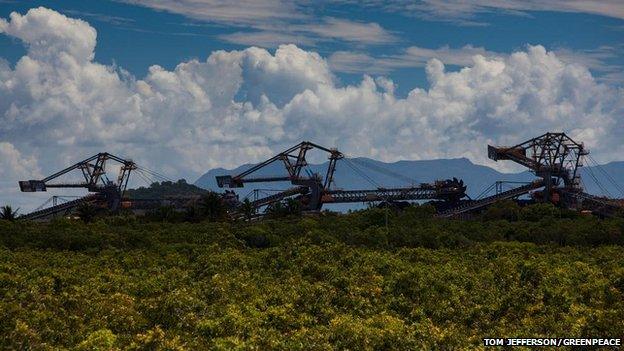
Abbot Point is one of Australia's major coal ports
"The fast tracking of development at Gladstone [on the Queensland coast] triggered the World Heritage Committee's concern; this looks like a case of history repeating itself," said WWF-Australia reef campaigner Louise Matthiesson.
"No previous studies have examined the specific impacts of dredge spoil disposal in this sensitive area or the proposed alteration of the Caley Valley Wetlands," she said.
Greens Senator Larissa Waters said not only had Mr Hunt failed to require an environmental impact statement to dump spoil on the wetlands, he hadn't revoked the permit to dump the spoil in the reef's waters.
"So it's up to the proponent, [Queensland Premier] Campbell Newman, who is no friend of the reef, to decide whether to dump on the reef or its wetlands," she said.
- Published28 October 2014
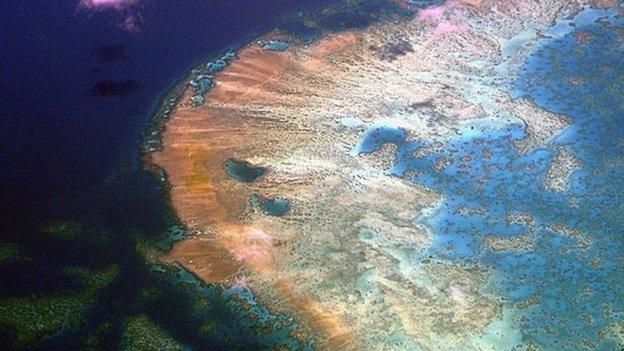
- Published22 October 2014
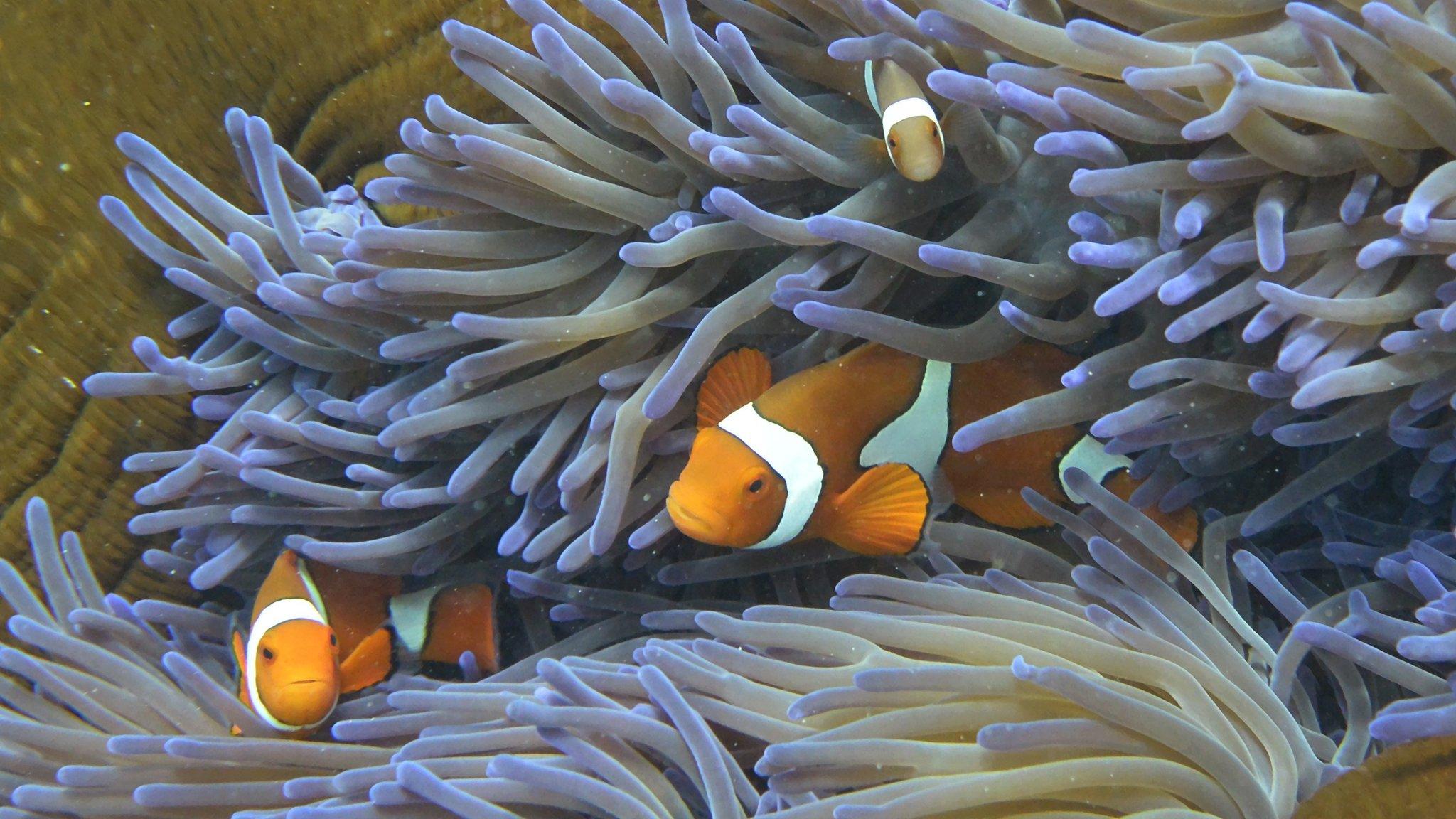
- Published8 September 2014
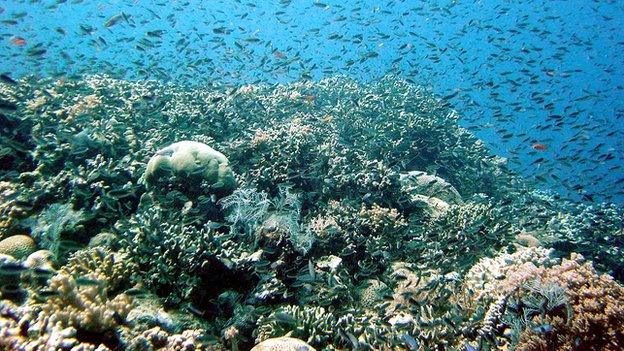
- Published13 August 2014

- Published29 July 2014
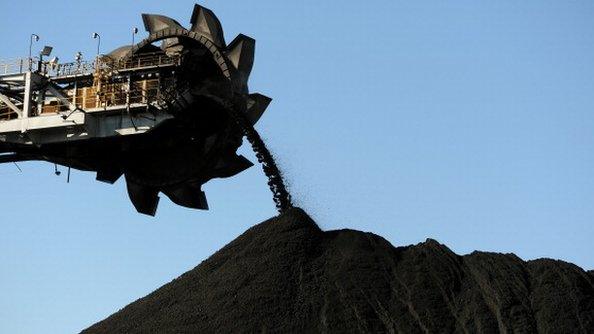
- Published19 June 2014

- Published31 January 2014

- Published17 January 2014
